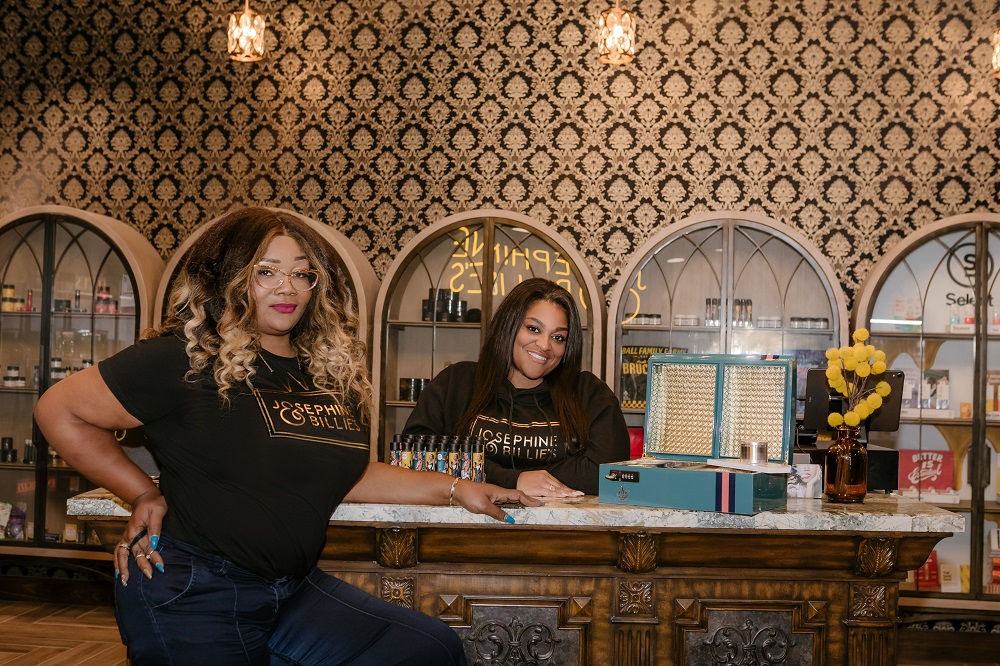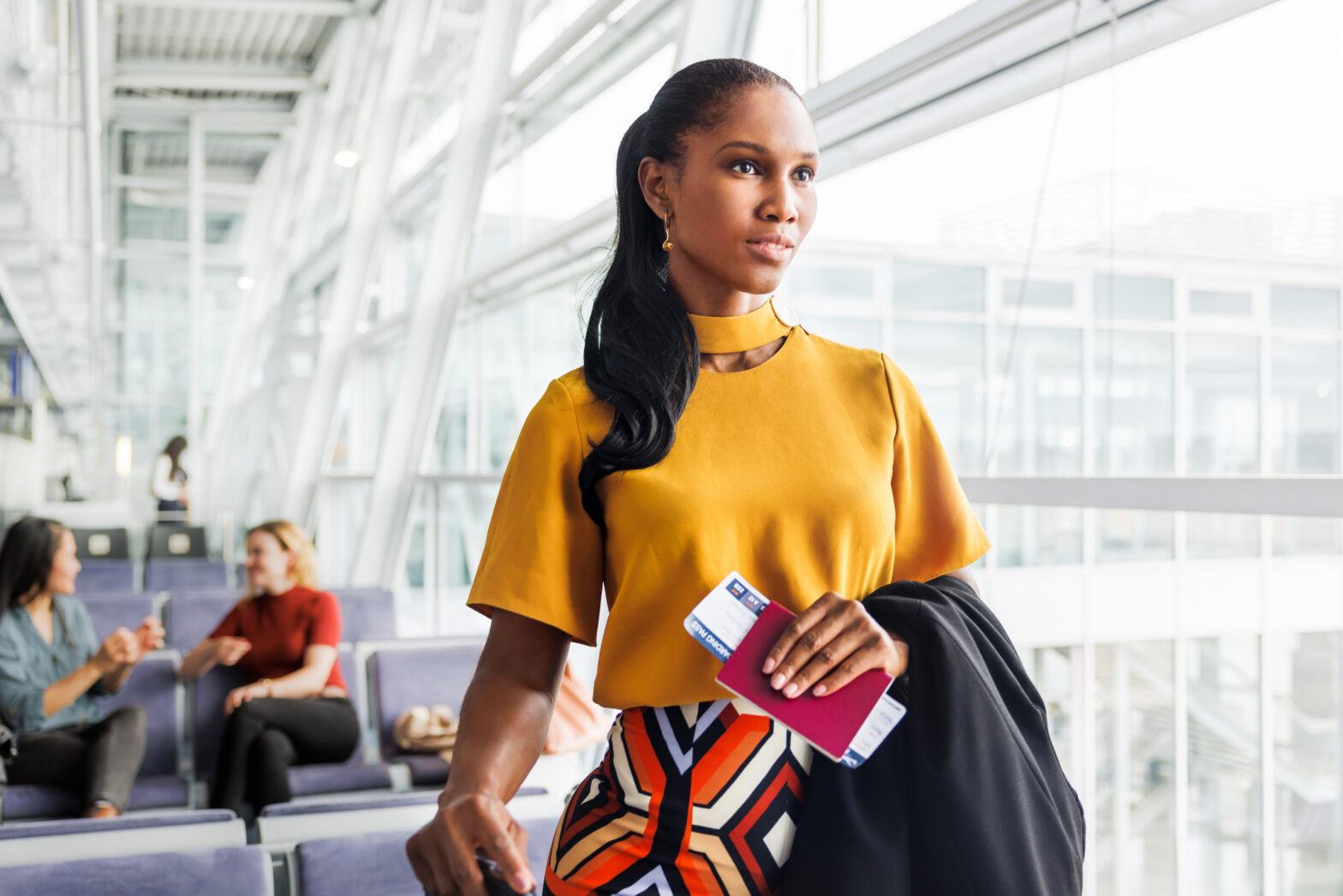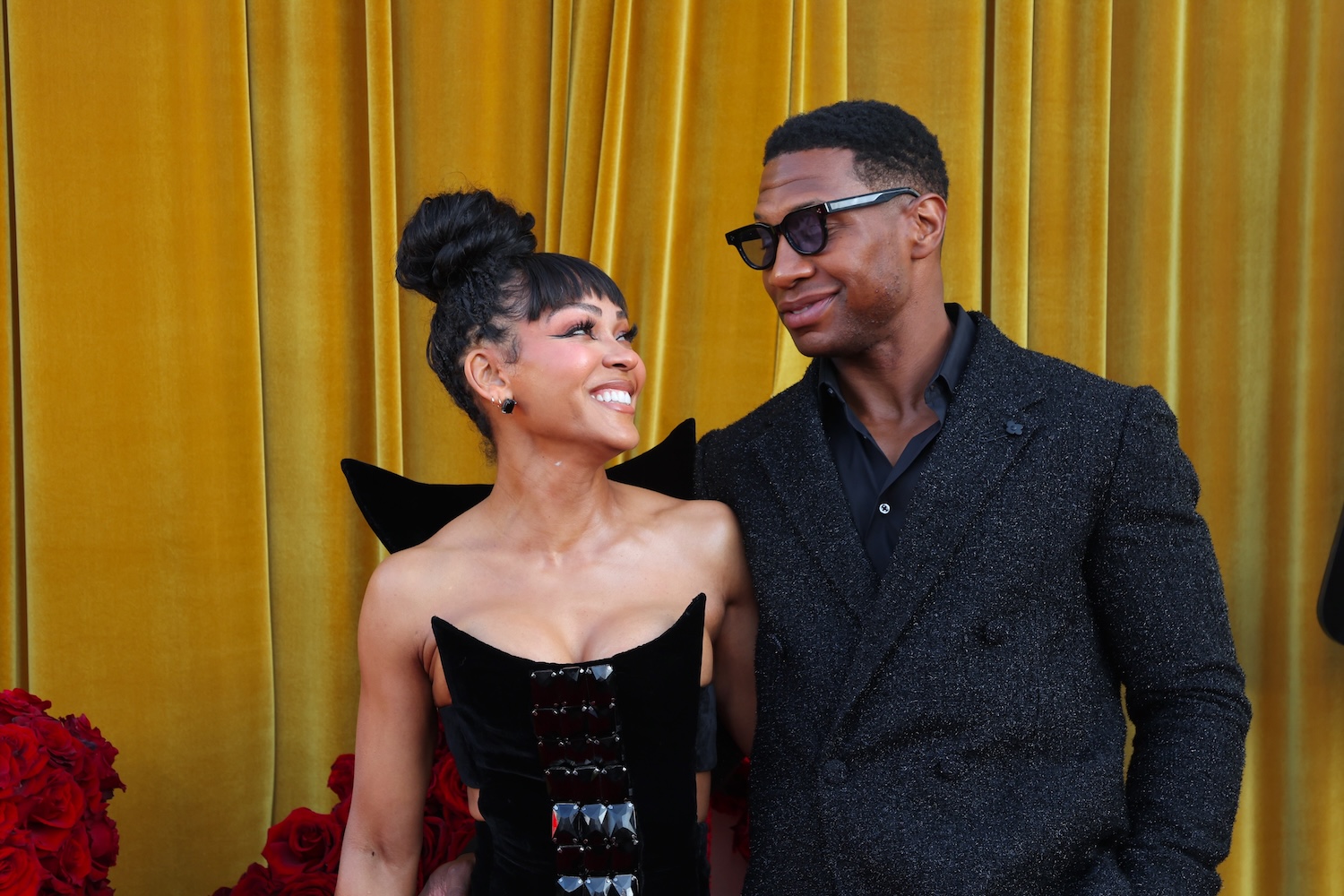With financial support of a new social equity fund led by Jay-Z as Chief Visionary Officer, Josephine & Billie’s is the first Black women-owned cannabis speakeasy in Los Angeles.
Officially opened to the public on October 29th, the company intends to promote the healing properties of cannabis in Los Angeles, California.
“Josephine & Billie’s seeks to become a thought leader in this space for the 1.3 million women of color in the city of Los Angeles and for millions more around the world with a multi-prong approach. We believe that we can fill a large hole in the retail market by becoming not just a dispensary, but a destination, bolstered by our connection to the community and authentic POC voice,” Whitney Beatty, founder and CEO of Josephine & Billie’s, told Travel Noire.
The Black women-owned cannabis speakeasy-style place was inspired by the speakeasy-style spaces where people of color—the Black community, in particular—could gather away from the perils of prohibition during the 1920s and 1930s.
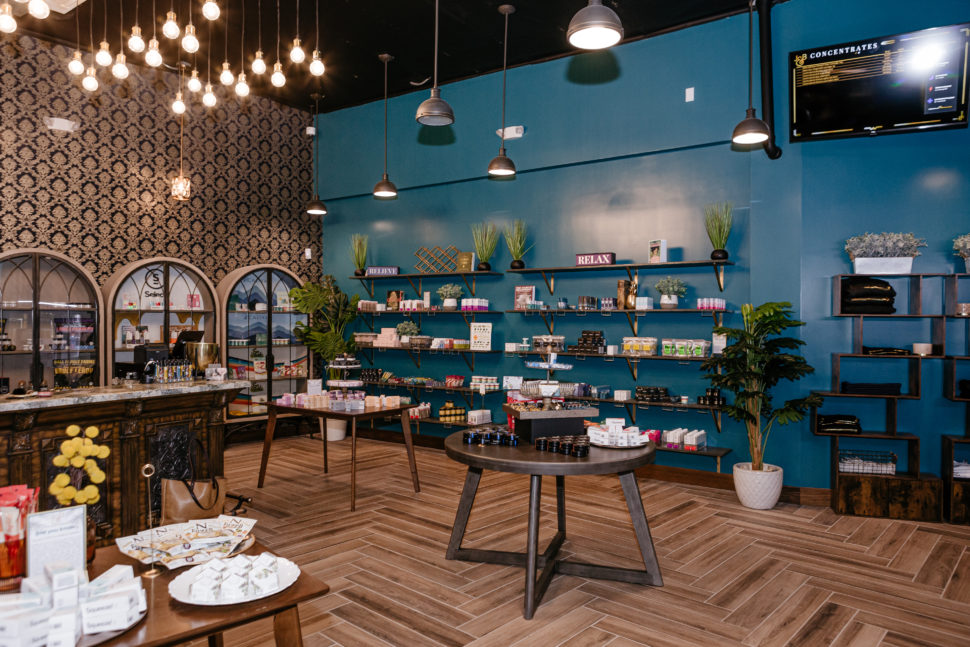
“Social factors play a large role in women of color’s perception and use of cannabis. As communities of color we’re disproportionately affected by the war on drugs, many have apprehension, and little experience. This lack of education and information about the medicinal benefits of cannabis coupled with a lack of trusted sources of information becomes a barrier to usage. Education is at the forefront of everything we do, as a part of our holistic approach to consumption,” Beatty said.
She added that most cannabis retailers in communities of color are unlicensed and provide little information, insight or programming and generally, feel unsafe. There is no dispensary focused on this demographic in Los Angeles until now.
From the infographics on the walls that describe how to read cannabis labels to the breakdown on why sativa and indica aren’t the best way to predict how a strain will make you feel— Josephine and Billie’s makes sure their customer base knows what they are buying.
“Our staff is educated not only on the product lines, but the history of cannabis as a whole. They can talk about Harry Anslinger just as quickly as they discuss the benefits of the entourage effect. Whether it’s dosage help, and potency questions or bio-availability concerns, our product knowledge helps empower our customer base to make informed purchases – and to become loyal customers.”
The store also seeks to be an important community partner, hosting senior groups from nearby churches for cannabis education, supporting local movements and advocating for community reinvestment.
In fact, Jay-Z’s investment support was crucial for the creation of this dispensary. Beatty said that she heard about the social equity fund being put together and pitched Subversive Capital.
“Again and again and again and again. I kept following up with them and giving them updates until they gave me an opportunity to pitch their full team.”
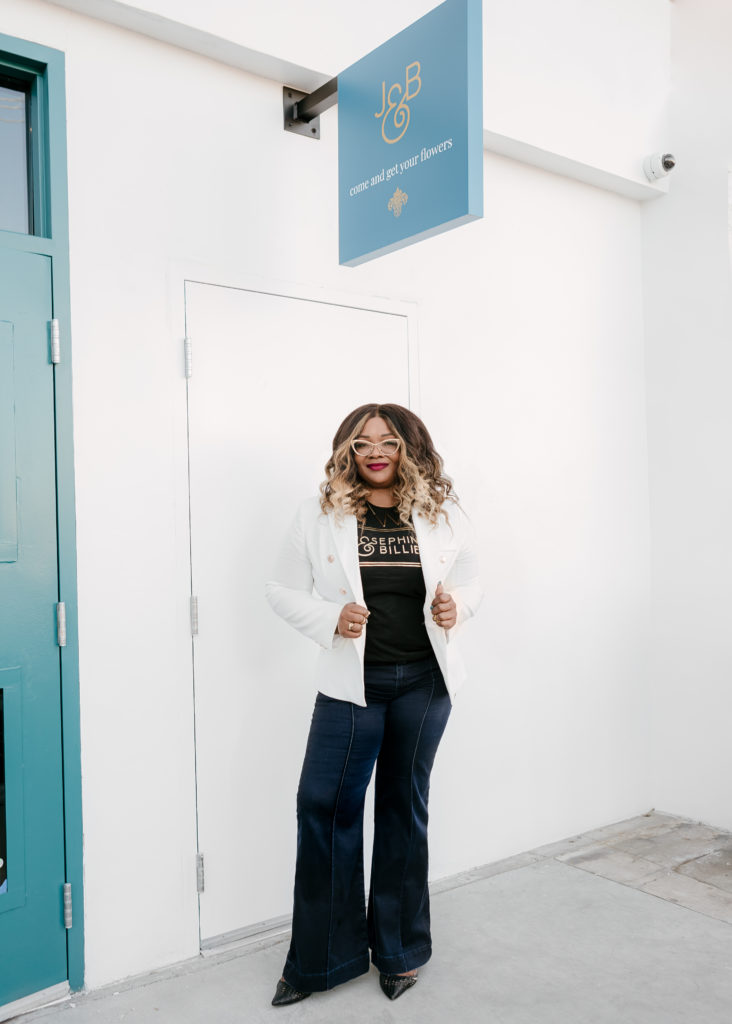
Whitney Beatty emphasizes that Josephine and Billie isn’t just a social equity business, nor is it just a dispensary.
“Ultimately, it’s an opportunity to bring cannabis home to a community that for far too long has gotten the short end of the stick in retail options, in a way that honors the contributions the community has already made to the industry. It’s full circle.”
The idea of creating her company
Imagining herself working in the cannabis industry was never in the plans for the CEO of Josephine & Billie’s.
“To be honest, I did not use cannabis when I was younger. I didn’t use it in high school, and I tried it a couple of times in college, but I wasn’t impressed. I had a 15-year career working in the entertainment business, but a couple of things changed my trajectory.”
Being diagnosed with anxiety was the first thing that led her to open this Black women-owned cannabis speakeasy.
“It was a life altering experience for me. I went from sitting at my desk with shortness of breath and heart palpitations to racing myself to the emergency room, parking between two ambulances of the ER. I was having an anxiety attack. Besides being very scary, I was most frightened because the medicine that I was given to treat my anxiety did not work for me. My doctor suggested I look into cannabis. I did my research, both on cannabis and the ways it could help me, but also on why I felt so negatively about it. I was able to find a CBD THC regimen that works for me. I was able to get off of all the other drugs my doctor had put me on.”
The second reason was to learn about the discrimination and impact the war on drugs had upon the people of color throughout the 20th century.
“The war on drugs has disproportionately disenfranchised black communities in this nation for years, and I believe it’s important that as this space grows to an estimated 50 billion dollar industry by 2026 that we have a presence.”
Challenges in opening a Black-woman owned cannabis speakeasy
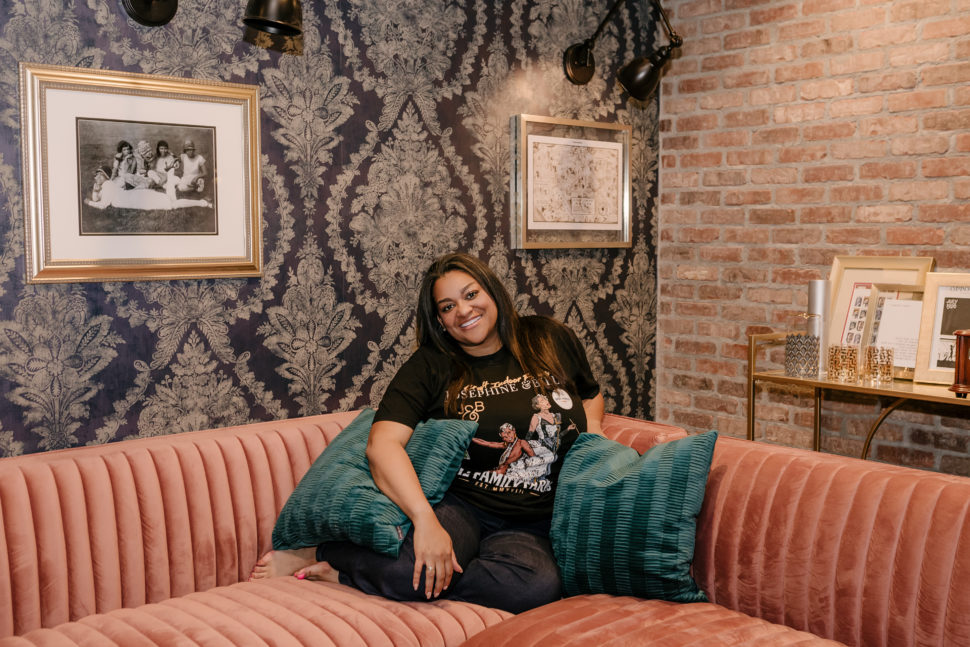
Beatty told Travel Noire that she has been in the cannabis space for 6 years with her ancillary brand Apothecarry Brands, designing safe and secure cannabis storage. Since she walked into the space, the entrepreneur has had a vision for a dispensary concept.
“I honestly didn’t believe it would come true. I was elated when LA launched a robust social equity program, and with hard work and dedication I am currently a Phase 3 Rd 1 social equity applicant with a paid city invoice for a retail and delivery license.”
But it hasn’t been easy for this Black women-owned cannabis business. Previously, she was partnered with a VC that went under in March 2019, sending her into a tailspin.
“It was a hard hit, but I refused to stop and took it as an opportunity to drill down and develop fully the dispensary concept I was most passionate about.”
It is in direct response to what she has seen as a lack of participation, education and medicinal cannabis usage in the WOC community, which can be tied to the destruction the communities witnessed during the drug war.
Raising money is also a huge challenge in any circumstance, and even more so in the cannabis space, where investors are leery of putting in money and a space that is still federally illegal, according to her.
“Not to mention the fact that over the last five years, only .02 percent of capital raises across ALL startups were closed by an African American female founder. So I knew there was an uphill road in front of me. I was lucky to be able to bring on an initial investor to allow us to continue to move forward, but I need more capital moving forward. And although I have experience in cannabis, in opening a dispensary I recognize that this is a new vertical in my cannabis experience, and I require a new set of skills, mentors and insights to be able to be successful in this space. “
“I literally put everything on the line (sold my house, quit my 9-5 as a single mother) because I truly believe in this space.” she concluded.
